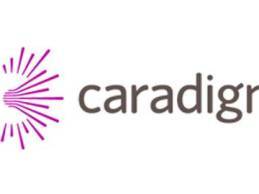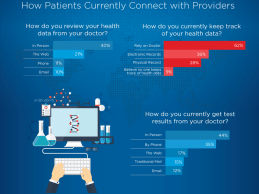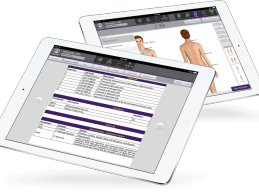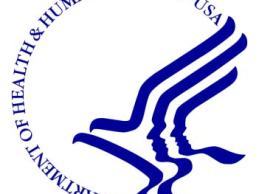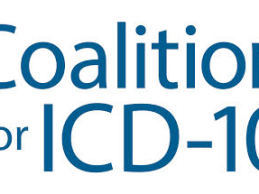Caradigm, a provider of enterprise population health, today announced that Continuum Health Alliance, a physician enablement company providing practice management, population health and community care services to provider groups, has selected Caradigm as part of its population health strategy.
Continuum provides a next-generation health platform, enabling independent physician organizations, hospital-based physician groups, commercial accountable care organizations (ACOs) and MSSP ACOs to
Read More
Archives for 2015
3 Reasons To Outsource Your Revenue Cycle Management
The last few years have been challenging for medical groups across the country. Mounting regulatory burdens, escalating costs, and declining reimbursements have put a substantial strain on physicians and their staff. Rising administrative burdens only add to the pressure, consuming precious time that healthcare professionals would rather spend with patients.
So should your practice outsource its revenue cycle management? According to new white paper from CareCloud, here are three reasons a
Read More
ZeOmega Acquires HealthUnity To Close Gaps in Interoperability
On Monday, population health management provider ZeOmega announced the acquisition of HealthUnity, a provider of interoperability solutions that enable providers, payers and public health organizations to streamline the secure exchange of patient data across disparate systems. HealthUnity offerings also include private and public HIE, master person index, referral management and patient consent to integrated delivery networks (IDNs), health systems, group practices and state collaboratives.
Read More
Meaningful Use Stage 3 Proposed Rule: 5 Takeaways for Physicians
On March 20, 2015 the stars aligned to produce four simultaneous events that will never again coincide during the life of human civilization. The first three, the vernal equinox, a total solar eclipse and a new supermoon, were brought to us by the stars themselves, and the fourth one was thrown out there by the government. The regulations for Meaningful Use Stage 3 were finally published. Meaningful use of electronic health records (EHR) was presented to us back in 2009 as part of a stimulus
Read More
Infographic: The State of the Connected Patient in 2015
While traditional communication channels remain popular among older patients, the next generation of younger patients known as millennials are interested in utilizing more digital health tools to enhance their patient experience, according to a recent Salesforce report. The “State of the Connected Patient” report, which surveyed more than 1,700 Americans who have health insurance and a primary care doctor to examines how patients are currently connecting with their providers, as well as their
Read More
Why I Hope to Help End EHRs Lack of Interoperability
I am tired of waiting. Millions of medical professionals and patients are tired of waiting. We have been waiting for EHR interoperability since the dawn of EHRs in the 1960s. Enough is enough! Our goal is to achieve EHR interoperability through a grass roots coalition of medical professionals and patients who are tired of waiting.
The simple life-saving ability of hospital EHRs to connect to one another so healthcare providers can easily and readily access patient data is not being addressed.
Read More
IBM Bets Big on Modernizing Medicine’s Specialty EMR to Advance Watson
Last week, IBM announced a strategic investment in specialty practice EMR provider, Modernizing Medicine to accelerate the adoption of Watson cognitive computing in healthcare. The amount from IBM was not disclosed. The Watson-powered app called schEMA is designed to help dermatologists offer optimized treatment options.
Utilizing cognitive computing and natural language processing, schEMA comprehends published healthcare information, such as peer-reviewed medical journals, to enable
Read More
HHS Releases Proposed Rules for Meaningful Use Stage 3
On Friday afternoon, the HHS, CMS and the Office of the ONC announced the release of the proposed Meaningful Use Stage 3 rules for the Medicare and Medicaid EHRs Incentive Programs and 2015 Edition Health IT Certification Criteria to support the path to nationwide interoperability.
The proposed rules are one part of a larger effort across HHS to support better care and lower costs in the health care system by working in three core areas:
- to improve the way providers are paid;
-
Read More
Do All Physicians Oppose the Transition to ICD-10?
Editor's Note: The Coalition for ICD-10 is a broad-based healthcare industry advocacy group — hospitals, health plans, hospital and physician office coding experts, vendors, and the health information technology (HIT) community— united in support of the U.S. adoption of the ICD-10 coding standard.
According to French abstract artist Robert Delaunay, “Our understanding is correlative to our perception.” Many in the healthcare community may have the perception that all physicians oppose the
Read More
KLAS: 25% of Small Practices Feel Stuck With Their Current EMR
More than one-quarter of providers at small practices (1–10 physicians) feel stuck with or plan to leave their current EMR vendor, according to a recent KLAS study,"New Leaders in the Small-Practice Market: Ambulatory EMR Performance 2015 (1-10 Physicians)." Providers cited poor usability, missing functionality, and unreliable vendor support as their primary frustrations with their EMR solution.
For the report, KLAS spoke with more than 750 small practices (1-10 physicians) to understand
Read More

